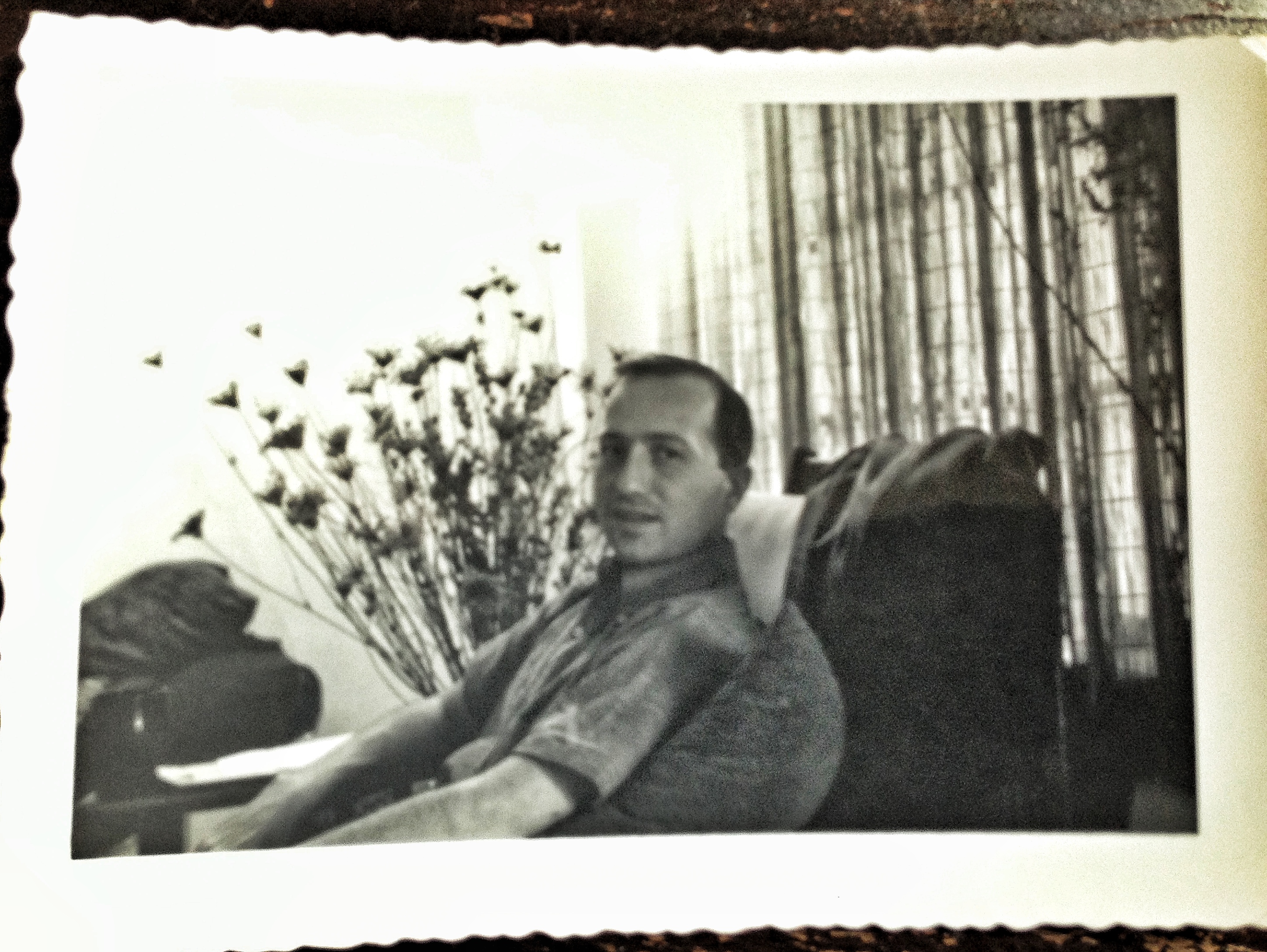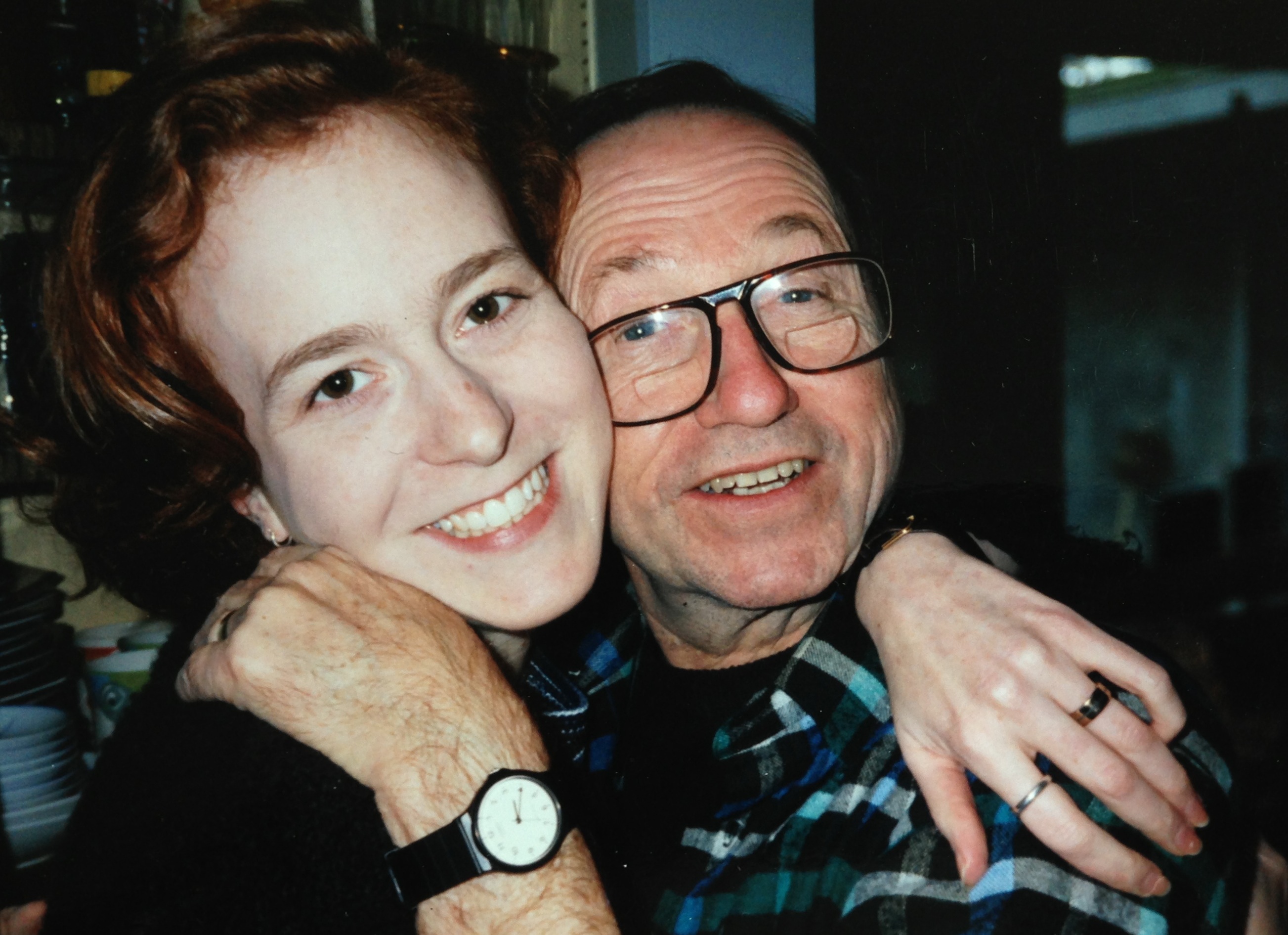16 Nov Winding Paths

I woke up today thinking about my father. Like so many other people, he spent way too much of his life suffering because he was unable to break his deeply ingrained habit of unconsciously repressing his emotions. As a psychologist, and someone who had discovered Dr. Sarno’s book “The Mind Body Prescription” in the early 80’s, he understood the problem and embraced the solution. Some people read Dr. Sarno’s books and have a miraculous recovery. Others, see themselves on every page, yet struggle to improve. While my father saw quick improvement of his whiplash upon reading the book, he continued to have a long winding journey with psychosomatic issues, which ended less successfully than he might have liked. I want to avoid the pitfalls. As I follow in his footsteps I also try to find my own way.
When I was in second grade, my father almost died of a bleeding ulcer. I recently found out from my older sister that this was not the first ulcer that had put him in the hospital. Shortly after he recovered, our family had a very minor fender bender. It didn’t seem that anyone was hurt at the time but my dad ended up with “whiplash”, and struggled to find relief from his pain for years before he found “The Mind Body Prescription”. Dr. Sarno writes a great deal about how whiplash, like ulcers, are a mind body problem. Discovering that over 80% of his pain patients had a history of ulcers, colitis, migraines, and many skin issues, he realized that his patients’ pain problems might be related to the repression of their emotions. Similarly, when my father read Sarno’s book, he too saw the possibility in this idea, and began to recover. The book resonated so much with him that he began to share it with many other people. I remember always seeing copies around the house.
Unfortunately, despite his understanding of the connection between his emotions and his health, he was never able to fully overcome his symptoms. By the time he retired 25 years after first discovering Dr. Sarno’s work, he health began to decline and he developed many symptoms related to various autoimmune diseases. First doctors thought he had rheumatoid arthritis, and at one point we thought he had Lou Gehrig’s disease or ALS. However, the tests were inconclusive and he was never given a clear diagnosis. What he did have was a great deal of pain, stiffness, nerve issues. The muscles in his hands began wasting away, and he was worried about losing his functionality.
My father held a dim view of religion, and he was quite skeptical of matters related to spirituality. I was a religious studies major in college – not because I went to school with an intention to be a professor of religion (or to consciously annoy him), but because when it was time to declare a major, I had already completed it. I was hungry to know more about these ideas, and they gave me a foundation from which to understand spiritual matters from an intellectual perspective. I have a sense that had my father been able to move past his skepticism of ideas related to faith, he might have been more able to heal. It is quite clear, even from a scientific perspective, that healing has a great deal to do with belief. This is where my path diverges from that of my father, and I hope it helps me to heal in ways that he was not able to.
I loved my father with a fierceness, so his passing has left a void for me. A year ago, my family moved into the house I grew and I often find myself almost feeling like I’m pretending to be him. It took my father some time to fully embrace the idea that I would devote my life to art, but he always enjoyed being involved in the process. He had a deep knowledge of films and literature and his insights have been invaluable to us. As we move forward on this film, I often try to draw on his wisdom but I also know that I have to separate myself from him because he was unwilling or unable to fully except the idea that he might have to change some things about himself if he wanted to get better.
He went to traditional doctors, but he also tried to use a mind body approach to help himself heal. He did yoga, exercised, and tried to use supplements like fish oil for his joint pain. On the morning of January 25, 2006, he went to his doctor and was told that what he was doing to try to alleviate the symptoms in this manner, wasn’t helping. That evening, while trying to cross a busy roadway at a traffic light, he was hit by a car. Sometimes he could be impatient. It was busy intersection, and with his compromised gait, he should have waited for the light to cycle through all the way instead of trying to rush.
I get my love of movies from my father who was fairly obsessed with them. When I married my filmmaking partner in 1999, he combined his love of movies and his interest in human nature into what I think is one of the best wedding speeches ever written. It is such a spiritual text, and when I revisit it every few months, I always find something new and I’m always able to connect it to my present situation:
I would like to share with you the secret of successful living — filmmaker’s version.
Central casting has assigned you a role in The Human Comedy. You have to accept the role, but view it as a continually changing and evolving part. Above all, do not hold to the false belief that you are audience, not actor, that you are a watcher of other’s foibles and pratfalls.
You are both actor, audience (i.e. observer of your own performance), script doctor, editor, and director. The script and performance are always being revised — this is a work in progress. The better you understand the comedy and your own behavior as an amusing player — the lighter your touch, the better you become at improving and enriching your performance. Those who deny they have been cast in parts become sterile, inflexible caricatures, while those who embrace their roles and keep working to improve their performances, grow, change, and expand their selves.
Above all, remember the script is not Long Day’s Journey into Night nor the tale of woe of Juliet and her Romeo, but it is The Human Comedy, a warm and endearing script. Play it well and your days will be mostly joyful.
Words Spoken by David Galinsky, 9/13/97
I hope that these words provide you with half as much grace as they have given me.


Hasanna Fletcher
Posted at 21:31h, 16 NovemberI loved your post! I’m so happy that you made this film and that I can be a part of the community that supports it.
Monica Elizabeth Restivo, RN
Posted at 04:00h, 17 NovemberSo who’s in the picture with your bifocal-wearing Dad?
It is fascinating that intellectually your dad knew of psychosomatic illness, yet was unable to rise above his own, and how poignant that he was in denial regarding spirituality in his life. I would bet a million dollars that his resistance in this area was the source of his physical maladies. Thanks for creating an enlightening and educational film! I’m so glad to be a part of it!
Michael Galinsky
Posted at 13:17h, 17 NovemberMonica,
The woman in the picture is my wife Suki, who is one of the co-directors of the film (along with David Beilinson). I was talking with my sister last night and she let me know that my father was much more spiritually inclined than I realized in his last few years. They connected a great deal over these issues. When we write about others, our parents, siblings, friends, or politicians, we tend to be writing as much, or even more, about ourselves. My experience of, and with, my father was very different that that of my mother, or my siblings, Looking back, at both my writing, and my thoughts, it’s clear he was more resistant to the orthodoxy of religion than he was to the the ideas. Still, I think he accepted the ideas even more in his later years.